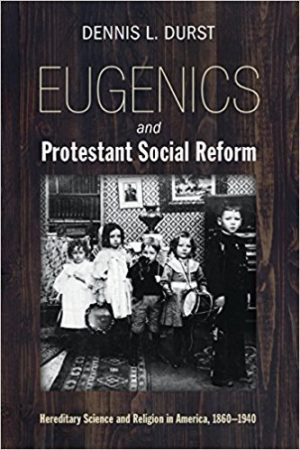Evangelical Responses to the American Eugenics Movement, 1904-1939
Team Members/Contributors
About this dissertation fellowship
The American eugenics movement (1904-1939) sparked an intense debate in American culture in which clergymen and theologians actively participated. While recent historians have studied the Protestant liberal/progressive support for the eugenics movement, as well as its Roman Catholic opposition, the evangelical Protestant response to various tenets of eugenics remains unexplored. Situated between liberal Protestantism and conservative Catholicism, evangelicals did not articulate a consistent stance either for or against eugenics. In this dissertation, I argue that the ambivalent response of evangelicals to the American eugenics movement reflected divisions among them concerning the relationship of Christianity to modern culture. Internal concerns formed the context of this response, most notably the loss of Protestant clerical authority in American culture and divisions among evangelicals over the proper relationship of Christianity to modernity. Evangelical leaders also contended with rival claimants to cultural authority such as modern science, theological modernism, and the Roman Catholic Church. This study aids contemporary Christian reflection on the relationship between genetic research and society by giving attention to past religious discourses concerning social policies based on human heredity. Such research not only enhances our awareness of the diverse nature of responses to the eugenics movement, but also how the church shapes and is shaped by American culture.
| Image | Title | Year | Type | Contributor(s) | Other Info |
|---|---|---|---|---|---|
| No Legacy Annuls Heredity From God: Evangelical Social Reformers and the North American Eugenics Movement | 2002 | Dissertation |
Dennis Lee Durst |
||

|
Eugenics and Protestant Social Reform: Hereditary Science and Religion in America, 1860-1940 | 2017 | Dissertation Book |
Dennis Lee Durst |